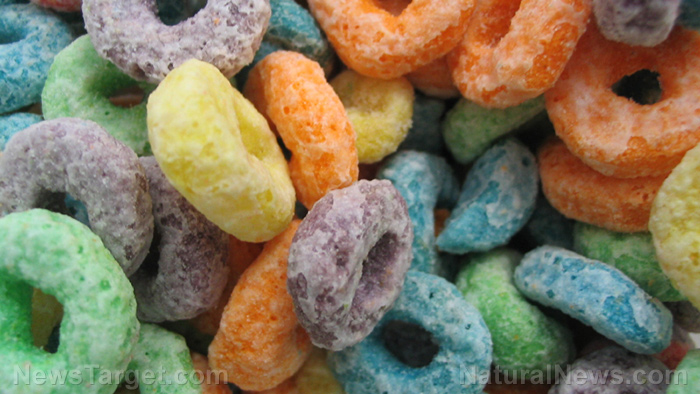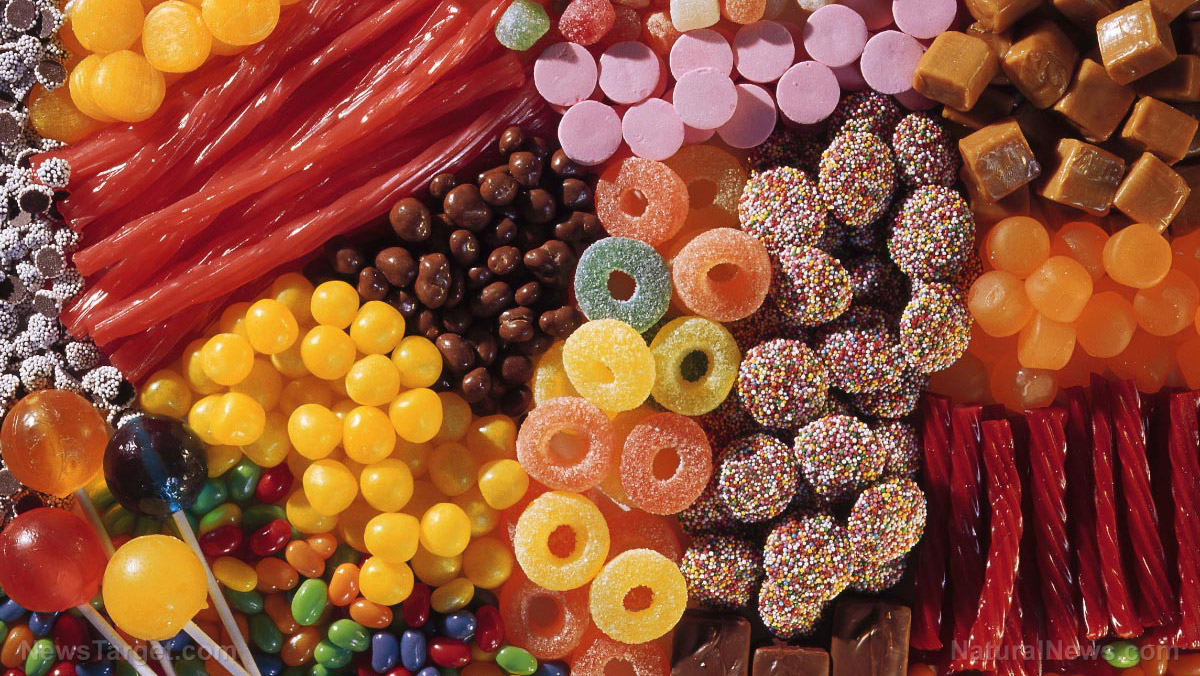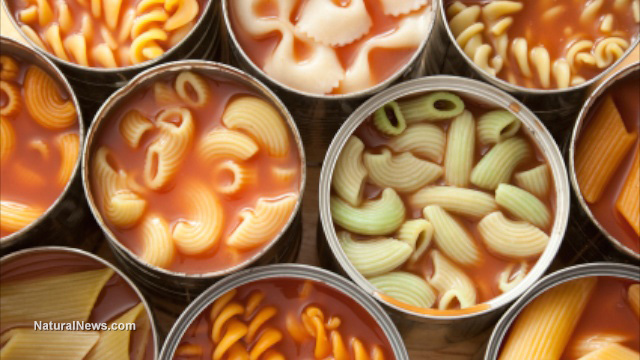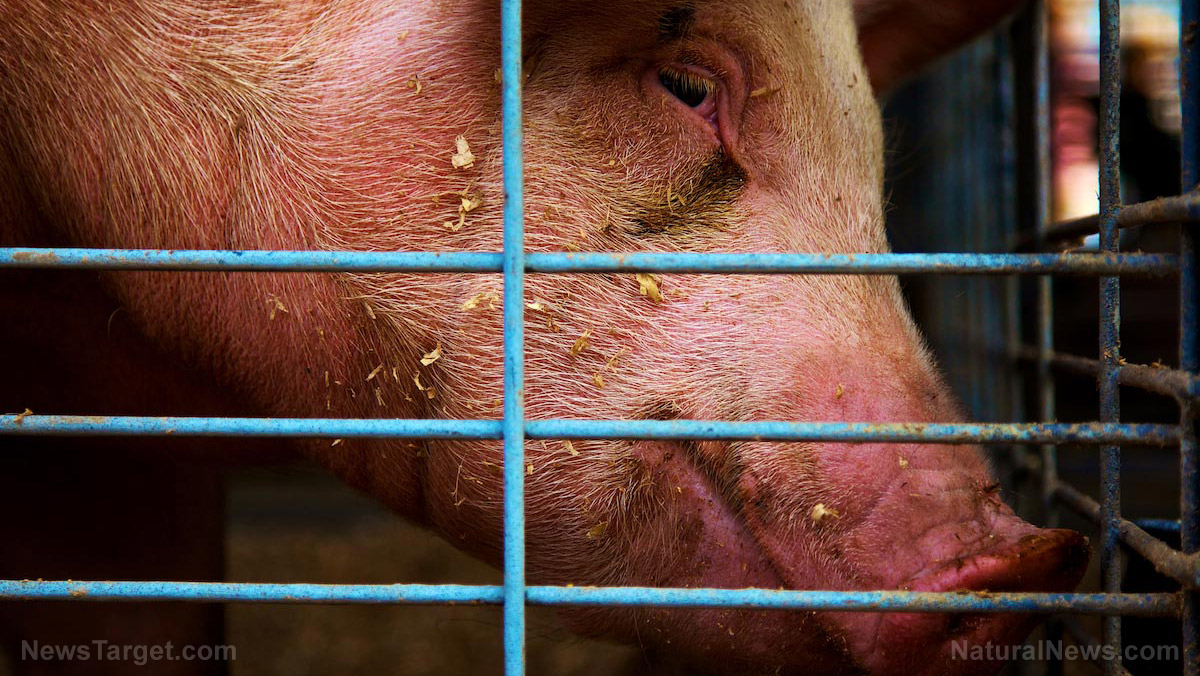Sweet little lies: How food companies hide the sugar of their food products from you
09/25/2019 / By Melissa Smith

Consuming a lot of sugary food and drinks has been linked to dreadful diseases, such as obesity, Type 2 diabetes, and heart disease. Unfortunately, despite these negative effects of sugar on health, a lot of people still consume sinful amounts of it. The average American may be eating around 15 teaspoons or 60 g of added sugar per day. But this isn’t because people are knowingly putting lots of sugar on their food – the culprit is most likely packaged and processed food. They may be marketed as healthy, but packaged and processed foods are loaded with hidden sugars. Here are eight ways food companies hide sugar in their products:
1. Giving sugar different names
The term “sugar” is most commonly used to identify the short-chain carbs that give your food a sweet taste. However, sugar goes by countless names, including glucose, fructose, and sucrose. But there are many other unfamiliar names used for sugar. To avoid accidentally consuming lots of sugar, look out for the following ingredient names:
- Dry sugar – Barley malt, beet sugar, brown sugar, cane sugar, caster sugar (powdered sugar), corn sweetener, fruit juice concentrate, golden sugar, palm sugar, and maltose.
- Syrups – Golden syrup, high-fructose corn syrup, malt syrup, and carob syrup.
2. Using different types of sugar
The ingredients in food products are listed in descending order by weight. Food manufacturers often take advantage of this. For example, they use smaller amounts of three or four types of sugar in one product to make their products appear healthier. These sugars then appear further down on the ingredients, making a product seem low in sugar. So, when you’re buying food, read food labels and look out for different types of sugar.
3. Adding sugar to foods you would least expect
Cakes or candies are known to have high amounts of sugar, but do you know that some foods that aren’t really sweet could be loaded with sugar? Breakfast cereals, spaghetti sauce, and yogurt are some of the foods you would not expect to contain lots of sugar.
4. Using “healthy” sugars or “alternative sweeteners” instead of sucrose
Food companies make their products appear healthy by using alternative sweeteners instead of sugar. They also put labels like “contains no refined sugar” or “refined sugar-free” on their products’ packaging. This means that they don’t contain white sugar. Artificial sugars can appear healthier because some have a slightly lower glycemic index (GI) score than regular sugar and provide some nutrients, which are usually very low. Moreover, unrefined sugar is still added sugar. Common high-sugar sweeteners that are often labeled healthy include agave syrup, birch syrup, and cane sugar. These sweeteners are still sugar, so consume them sparingly.
5. Mixing added sugars with natural sugars on the ingredients list
Natural sugars, which come from fruits and vegetables, aren’t a health concern, unlike added sugars. However, food labels often combine added and naturally occurring sugar together into one total amount. This makes it difficult to determine how much sugar is naturally in your food and how much is added. If you are eating mostly whole, unprocessed foods, instead of packaged or processed foods, most of the sugars you’ll consume are natural.
6. Adding a health claim to products
Many food companies often put health claims on their products to lure people into purchases. The most common examples are labels like “natural,” “healthy,” “low-fat,” “diet,” and “light.” These labels are often used to confuse consumers into thinking that unhealthy, processed food is good for them. While these products may be low in fat and calories, they are typically loaded with added sugar. (Related: Big Food uses ‘natural’ labels to trick you into eating GMOs.)
7. Reducing the serving size
Food manufacturers often decrease the portion size to make products appear lower in sugar. They often list a much smaller amount than what you would consume in one sitting. To avoid this, carefully examine the number of servings per container. If a small food item has multiple servings, you might be eating more sugar than you intended.
8. Producing sweet versions of a low-sugar brand
Low-sugar brands may still spin out sugar-loaded products. This practice is common with breakfast cereals. For example, a whole-grain cereal that is low in sugar may be produced in new packaging with added flavors or different ingredients. This can mislead consumers who may see that the new version is just as healthy as their usual choice.
The best way to avoid being misled by food products is to limit your consumption or completely avoid packaged and processed foods. If you do buy these products, carefully check the ingredients to spot added sugar on food labels.
Sources include:
Tagged Under: added sugar, artificial sweeteners, aspartame, Big Food, corporations, deception, food companies, food labels, food products, lies, nutrition labels, refined sugar, sugar addiction, Sugars, sweeteners, syrups, toxic food, toxic ingredients, unrefined sugar, white sugar
RECENT NEWS & ARTICLES
COPYRIGHT © 2017 FAST FOOD NEWS
















